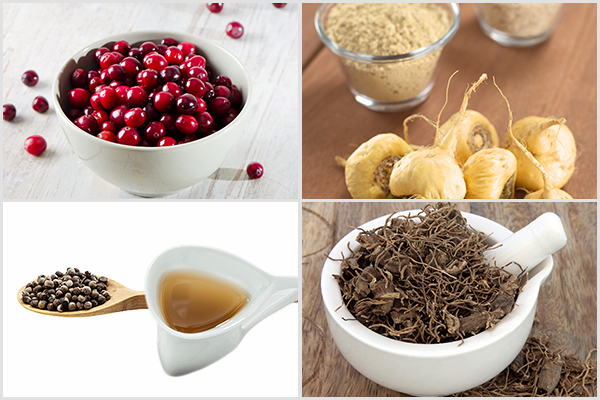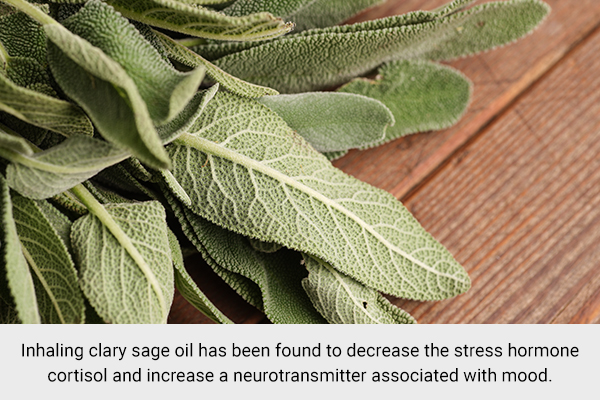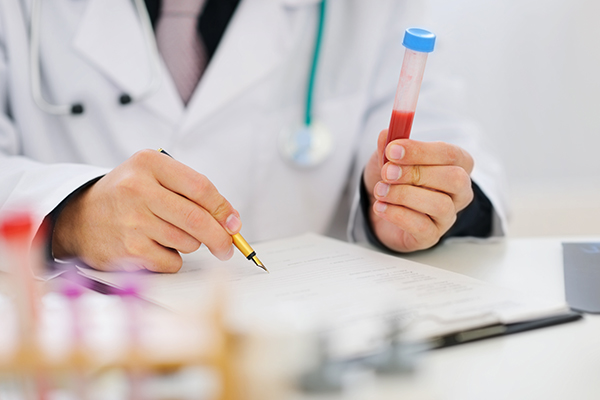In this article:
Hormones play a crucial role in your overall health and well-being, influencing everything from your mood and energy levels to your metabolism and reproductive function.

When hormone levels become imbalanced, a range of symptoms and health issues can develop. While medical intervention may be necessary in some cases, several natural approaches can help restore hormonal balance.
This article will investigate simple and effective strategies for balancing hormone levels naturally.
Natural Methods for Balancing Hormone Levels
Here are some effective strategies to help restore your hormone levels and counter hormonal imbalance.
1. Get uninterrupted sleep of at least 7 hours every night
Sleep plays a crucial role in maintaining hormonal balance in your body. Different hormones are affected by sleep: (1)
- During sleep, the levels of growth hormone increase, aiding in the growth and repair of body tissues.
- Melatonin, another hormone, is responsible for regulating the sleep-wake cycle. It helps you fall asleep and stay asleep.
- Cortisol, a hormone associated with stress, follows a circadian rhythm, meaning it depends on the body’s sleep-wake cycle. It’s usually highest in the morning.
- Ghrelin and leptin are hormones that affect appetite. Ghrelin promotes food intake, while leptin suppresses it.
Lack of sleep or poor sleep quality can disrupt the balance of these hormones. Studies have shown that sleep deprivation can lead to changes in hormone levels and can increase the risk of obesity and diabetes.
Even a single night of total sleep deprivation can affect your metabolism and energy expenditure. Not only the quantity but also the quality of sleep matters. Disruption of deep, restorative sleep stages, such as slow-wave sleep (SWS), can have negative effects on glucose metabolism and insulin sensitivity.
Prioritizing sufficient and good-quality sleep can contribute to better overall health and reduce the risk of hormonal issues. (1)
2. Incorporate a polyphenol-rich diet
The food you eat provides the energy and nutrients your body needs to produce hormones and function properly. For example, cholesterol, which comes from your diet, is used to create steroid hormones.
Research has shown that a plant-based diet, particularly one rich in polyphenols, has many health benefits such as reducing inflammation, regulating metabolism, and improving hormonal balance. (2)
Furthermore, certain factors related to diet, such as food allergies, obesity, and digestive issues, can lead to hormonal imbalances. Researchers believe that substances in the diet can directly and indirectly affect hormones by activating receptors and signaling pathways.
For example, pomegranate, dark chocolate, and green coffee, which are rich in polyphenols, can lower stress levels and improve mood by reducing the stress hormone cortisol. (2)
Experts recommend the following for good hormonal balance:
- Incorporate sources of healthy fats into your diet, such as avocados, nuts, and fish.
- Include omega-3-rich foods such as flaxseeds, chia seeds, and walnuts.
- Include lean sources of protein such as poultry, fish, and tofu.
- Opt for complex carbohydrates such as whole grains and sweet potatoes.
- Incorporate vegetables such as broccoli, cauliflower, and kale.
- Minimize the consumption of processed foods and sugary snacks.
3. Incorporate maca root into your diet
In a lab experiment, scientists looked at the effects of a special organic preparation called Maca-GO, which was made from the root of the Lepidium peruvianum, commonly known as maca. This plant belongs to the family Brassicaceae and is native to the Central Andes. (3)
Maca-GO had some interesting effects. It seemed to help balance hormone levels and reduce depression by promoting relaxation, which could be useful for those who require hormonal balance such as women going through menopause. (4)
Incorporate maca root into your daily routine by adding it to smoothies or oatmeal.
Note: Maca root studies have not reported any side effects with use. However, researchers advise that you should boil maca root before eating it to stay on the safe side. Fresh maca may have unknown effects on health, so it’s best to take precautions and avoid any potential risks. (3)
4. Include chasteberry tea in your morning routine
As age increases, the body’s hormone levels can go out of whack, causing all sorts of problems. But fear not! A little gem called chasteberry (Vitex agnus-castus) can come to the rescue.
In animal models with hormonal issues, chasteberry reduced weight gain and balanced the hormone levels. Thus, chasteberry can be used as a natural hormone remedy. It fights against the effects of aging and oxidative stress to improve hormone imbalances. (5)
To make chasteberry tea, simply steep a teaspoon of dried chaste berries in hot water for 5–10 minutes, and then strain and enjoy the herbal infusion for its potential hormone-balancing benefits.
Note: According to some experts, drinking this tea is safe, but in rare cases, side effects may be observed, including gastrointestinal issues such as an upset stomach, nausea, and diarrhea.
5. Take a black cohosh supplement
Many women going through menopause are looking for alternative treatments to hormone replacement therapy because of its potential health risks. One such alternative is black cohosh, a natural remedy that has been used for over 100 years for its effect on hormone activity.
So far, only one standardized black cohosh extract has been tested, and the recommended daily dose is 40–80 mg. It’s important to note that it may take 4–12 weeks of consistent use before experiencing any benefits.
Some side effects such as nausea, vomiting, headaches, dizziness, breast pain, and weight gain have been observed in clinical trials. (6)
Note: Due to its potential effects on sex hormones, black cohosh should not be used by children or by pregnant or breastfeeding women.

6. Take a few sips of ashwagandha water daily
Ashwagandha is a natural herb that has been found to play an important role in balancing hormones. In one study, after 8 weeks of taking ashwagandha, the participants had a significant increase in their testosterone levels compared to those who didn’t take it.
Testosterone is an important hormone for both men and women, and having optimal levels can help with various aspects of health, including fertility. So, the fact that ashwagandha can naturally boost testosterone levels is quite remarkable.
One possible explanation for this effect is that ashwagandha contains certain compounds called withanolides, which have a similar structure to testosterone. These withanolides may mimic the action of testosterone in the body, leading to the observed benefits. (7)
Typically, for drinking, the common recommendation is to mix 1–2 teaspoons (5–10 g) of ashwagandha powder with 8 ounces (about 240 mL) of water.
Note: A study revealed that some unwanted effects may be associated with taking ashwagandha, which includes congestion in the nose, difficulty passing stool, cough, sleepiness, and reduced appetite. (8) Some experts also report acne as a possible side effect of ashwagandha.
7. Consume evening primrose supplements
Being overweight can disrupt the normal functions of the body, including the reproductive hormones. In females, obesity can lead to fertility problems.
The good news is there’s a natural remedy called evening primrose oil (EPR oil), which can help restore hormonal balance.
A study conducted on obese female rats showed that EPR oil had a positive effect on reducing inflammation, regulating reproductive hormones, and improving irregular hormonal cycles.
The rats that received EPR oil treatment also showed improvements in levels of insulin, leptin, prolactin, and testosterone. Additionally, EPR oil helped decrease the levels of certain inflammatory substances and improve insulin resistance. (9)
These findings suggest that EPR oil could be a promising natural solution for managing hormonal imbalances. A typical dosage for EPR oil is 2–6 g per day.
Note: While EPR oil is generally considered safe, some individuals may experience mild digestive issues.
8. Drink green tea twice a day
Hormonal imbalances can disrupt the normal functioning of the body. Fortunately, consuming green tea can have a positive impact on hormonal balance.
A study showed that a 10-day infusion of green tea extract led to a significant decrease in luteinizing hormone (LH) levels, which may be helpful for women with high levels of LH because of a condition called polycystic ovary syndrome (PCOS). (10)
Note: LH hormone is an important hormone for the reproductive health of both men and women. So, any imbalance with it should be resolved at the earliest.
Furthermore, green tea may cause a significant decrease in insulin resistance, indicating improved metabolic health and diabetes. (10)
Note: If drinking green tea on an empty stomach causes digestive issues, you can try drinking green tea with food or opt for decaffeinated versions.

9. Give fennel tea a try
Fennel is a natural remedy that can help balance hormones, particularly in conditions such as PCOS, which affects many women.
In a study conducted on rats with PCOS, the administration of fennel (Nigella sativa) extract showed significant improvements in hormonal levels and the structure of ovarian tissue. The extract had effects on the levels of LH, testosterone, estrogen, and antioxidant enzymes. (11)
In a different study, taking powdered fennel for 8 weeks resulted in significant reductions in the levels of thyroid-stimulating hormone (TSH), indicating its potential benefits for patients with Hashimoto’s thyroiditis. (12)
Note: Fennel tea use is usually very safe with no reported side effects in most people. (12) However, you should not drink this tea if you’re allergic to fennel.
10. Inhale clary sage oil

In a study, researchers investigated the effects of clary sage oil on the mood of menopausal women by analyzing changes in certain hormones in their blood. After inhaling clary sage oil, the women had significantly decreased cortisol levels (a stress hormone) and significantly increased concentration of 5-hydroxytryptamine (a neurotransmitter associated with mood). TSH levels also decreased, although not significantly. (13)
Overall, clary sage oil showed antidepressant-like effects and can be a good remedy to try.
11. Start managing stress effectively
Stress is an important factor that can affect hormone balance, and managing stress is crucial for overall well-being.
Here are some key points regarding stress: (14)
- Stressful life events have been found to be associated with an increased risk of Graves’ disease, a type of hyperthyroidism (increased thyroid hormones level in the body).
- Severe stress has been identified as a potential risk factor for diabetes, particularly in children aged five to nine years because of its influence on insulin levels.
- Stress can impact reproductive health. In females, stress may lead to menstrual irregularities such as anovulation and amenorrhea. In males, stress can contribute to decreased sperm count, motility, and altered morphology, which can affect fertility.
- Extreme stress can lead to a condition known as psychosocial dwarfism, characterized by stunted growth and behavioral abnormalities due to the involvement of the growth hormone.
- Mental stress can have a significant impact on the neuroendocrine systems, leading to chronic activation. This can result in the accumulation of central fat, increased appetite, and food intake, which contribute to obesity.
- Stress can worsen the control of preexisting endocrine disorders.
In conclusion, stress is a common part of life, and it can have profound effects on hormone balance and overall health. Managing stress through various techniques and seeking support is thus important.
12. Exercise regularly

Exercise plays a crucial role in balancing hormones in the body. During exercise, cortisol, prolactin, growth hormone, and other hormones are released.
Different types and intensities of exercise can trigger the release of these hormones in complex ways:
- Exercise has a profound impact on growth hormone secretion, making it the most potent stimulus for its release. Although the exact role of growth hormone in the acute phase of exercise is not well understood, it is believed to aid in long-term stamina by mobilizing free fatty acids. (15)
- Exercise, specifically high-intensity training, has been shown to improve insulin sensitivity.
- Exercise also has a positive impact on thyroid hormone and testosterone levels in men and progesterone levels in women, which are crucial sex hormones.
In summary, exercising plays a significant role in hormonal balance and overall metabolism. It’s essential to consider the timing and intensity of workouts for your individual needs.
What Leads to Hormonal or Endocrine Disorders?
Endocrine disorders can occur due to problems with the glands themselves (primary disorders) or because of issues with the pituitary gland that stimulates them (secondary disorders).
These disorders can result in either too much hormone production (hyperfunction) or too little hormone production (hypofunction).
Hyperfunction can be caused by overstimulation, gland abnormalities, hormone-producing cancers, or the use of external hormones. Hypofunction can be caused by pituitary understimulation or problems within the gland itself, such as autoimmune disorders and genetic issues. (16)
Note: Sometimes, abnormal tissue responses to hormones or the presence of certain antibodies can also cause endocrine disorders.
How Are Endocrine Disorders Diagnosed?

Detecting endocrine disorders often takes a long time. For early detection, it involves measuring hormone levels in the blood to diagnose the problem.
Active hormones are usually the free or bioavailable form. To measure them, methods such as equilibrium dialysis or ultrafiltration are used to separate them from binding proteins. These methods can be costly and time consuming. (17)
Sometimes, indirect estimates are used, such as measuring levels of insulin-like growth factor 1 (IGF-1) as an index of growth hormone activity. Also, dynamic tests may be needed; these tests can either stimulate or suppress the organ to see its response. (18)
Note: Hormone levels can vary throughout the day, so testing is done at specific times. Some hormones require multiple measurements over time or using pooled blood samples.
Most-Asked Questions
What are hormones and how do they work?
Hormones come in different types and can be peptides, steroids, or amino acid derivatives. They interact with specific receptors on or inside target cells.
Some hormones, such as corticosteroids and vitamin D, work by regulating genes inside the cells. Others, such as growth hormone, act on the cell surface to control enzyme activity or influence ion channels.
What are the signs of hormonal imbalance?
Signs of hormonal imbalance include mood swings, fatigue, irregular periods, weight changes, and low libido.
How long does it take to balance hormones naturally?
Hormonal balance varies for each individual, but it may take several weeks or months to see noticeable improvements.
Can hormonal imbalance affect fertility?
Yes, hormonal imbalances can impact fertility in both men and women.
Can I balance hormones through diet alone?
While diet plays a significant role, a holistic approach that includes lifestyle changes is often more effective.
Do hormonal imbalances only affect women?
No, hormonal imbalances can affect both men and women.
When should I seek medical advice for hormonal imbalance?
It’s advisable to consult a healthcare professional if symptoms persist, worsen, or significantly impact your quality of life.
How are hormonal disorders treated?
Treatment for hypofunction disorders involves replacing the hormone. If there’s resistance to the hormone, drugs that reduce resistance can help.
Hyperfunction can be treated with radiation therapy, surgery, or drugs that suppress hormone production.
Final Word
Balancing hormone levels naturally requires a holistic approach that includes lifestyle modifications, proper nutrition, stress management, and the use of herbal remedies and essential oils.
While individual experiences may vary, these natural strategies can be effective in supporting hormonal balance and overall well-being.
- Was this article helpful?
- YES, THANKS!NOT REALLY


